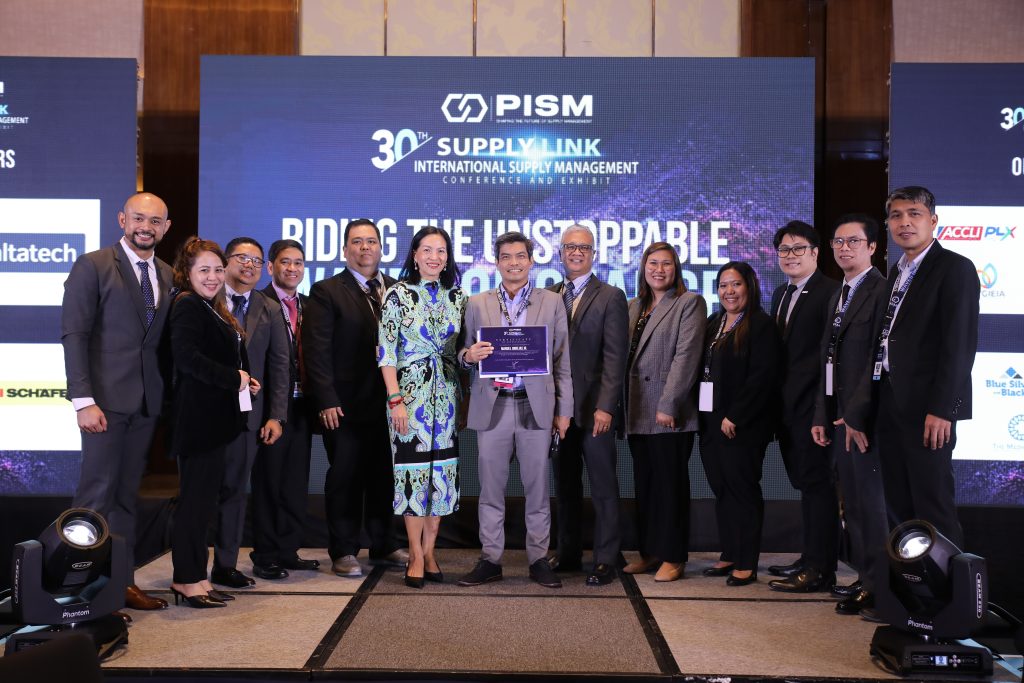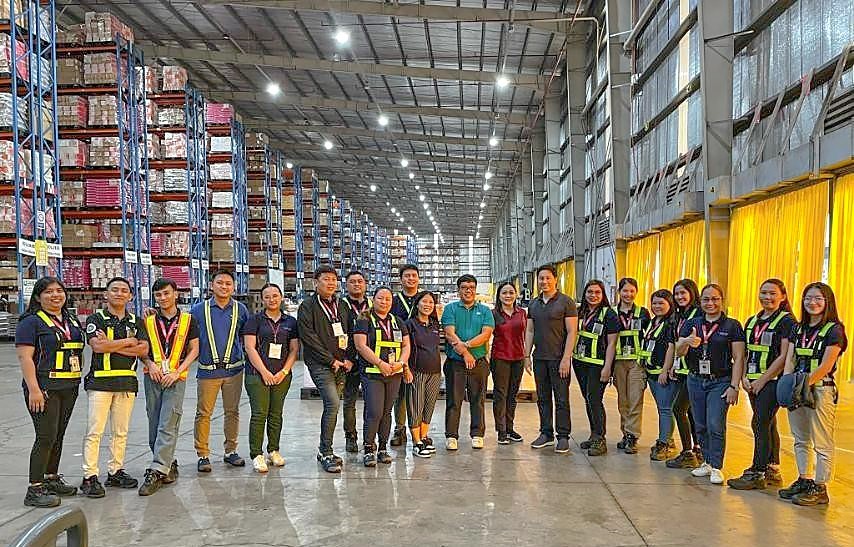
FAST Logistics Group, the leading provider of end-to-end logistics in the Philippines, explores the importance of learning management system on talent development and organizational growth as workplaces continue to evolve.
Learning and development (L&D) are becoming the fulcrum of organizational growth and competitiveness. With the rapidly changing business landscape, companies must continuously develop their workforce’s skills and knowledge to keep up with industry demands.
Traditional classroom training used to be the primary means of employee learning and development. As technology continues to advance, so does the way people learn. The rise of e-learning or online learning has paved the way for a more flexible and accessible approach to learning.
One of the key tools in implementing e-learning is through the Learning Management System. With the increasing demand for remote work and virtual learning, LMS has become a popular tool for organizations to deliver efficient and effective training.
What is Learning Management System
Learning Management System, also referred to as LMS, is a web-based software platform crafted to deliver, manage, and monitor learning activities. It acts as the central hub for an organization’s training content — encompassing e-learning courses, videos, documents, and other materials.
Through an LMS platform, employees can access training materials and resources anytime, anywhere. This proves advantageous for companies with extensive workforces or remote staff. Gone are the days of waiting for in-person training or depending on physical materials. Instead, employees can leverage online learning programs via computers or mobile devices wherever they are.
Moreover, these systems equip human resource professionals with the necessary tools to oversee and evaluate training programs, monitor employee advancement, and gauge the effectiveness of learning initiatives. Hence, understanding the crux of LMS is essential for human resource professionals and business leaders seeking to improve their organization’s L&D strategy.
Key Features of LMS
LMS platforms offer a range of features tailored to meet organizational requirements. Here are some essential features of LMS.
Course Creation and Management
LMS allows trainers and instructors to create, upload, and organize course materials in a centralized location. They can customize online courses and user-friendly interfaces to fit specific learning objectives or employee roles. This way, organizations can ensure that their workforce receives targeted and relevant training that matches their needs and learning styles.
Progress Tracking
With LMS, managers can monitor learner progress throughout their training journey. They can track course completion rates and other performance metrics through quizzes, tests, and surveys to evaluate employees’ understanding and gather feedback for continuous improvement of the learning portal. With this feature, companies gather data-driven insights to make adjustments in their L&D strategy.

Communication Tools
Some LMS platforms come with built-in communication and collaboration tools, such as discussion forums, team workspaces, and instant messaging. These features foster collaborative learning, allowing learners to interact with others and share their knowledge and experiences.
Assessment and Certification
Through LMS, digital certificates are immediately issued to learners upon successful course completion. These certificates not only serve as recognition for employees’ efforts but also provide a sense of achievement, motivating them to participate in other training activities and development programs provided by their organization.
FAST utilizes Learning Management System to equip its employees with the crucial skills and knowledge necessary for excelling in their roles. This online curriculum is meticulously designed to boost employees’ technical proficiency across areas such as software development, data analysis, and human resources, among others, which they need to proficiently oversee projects, teams, and resources.
Advantages of LMS Over In-Person Training
While traditional methods such as classroom lectures and one-on-one coaching remain valuable in organizations’ training programs, integrating LMS offers numerous advantages over in-person training. Here are some of them.
Centralized Learning Materials
Through LMS, companies can centralize all learning materials and training content in one accessible location, thus streamlining the learning process and reducing administrative burden. These platforms also support various learning formats, including videos, documents, quizzes, and discussions, catering to the diverse learning styles and preferences of their learners.
By housing all training materials in one place, LMS ensures that all learners receive the same information, instructions, and resources. This consistency is vital for maintaining the integrity and quality of the training program, and ensuring that every employee has the same knowledge foundation and understanding of the company’s processes, policies, and goals.
Flexibility and Adaptability
With LMS, training programs are not bound by the constraints of physical locations or scheduled times. Employees can access learning materials at their own pace and at their preferred learning environment. This eliminates the need to wait for in-person training sessions or printed learning materials, which is advantageous for companies with geographically-dispersed teams.
Moreover, LMS platforms offer various multimedia formats that cater to different learning styles, making training more engaging and effective. Employees can also revisit and review materials whenever needed, increasing their understanding and retention of knowledge.
FAST Learning Management System is expertly designed to guide team members through a structured, ascending journey of skill mastery. With each level, learners boost their competencies, ensuring a robust and progressive educational experience that aligns with the company’s industry leadership and dedication to logistics excellence.
Cost-Effective
Conducting in-person training sessions can be costly and time-consuming, especially for organizations with employees in multiple locations. With LMS, companies can save on training costs by delivering online courses and materials that can be reused and easily updated to reflect evolving company procedures and standards, as well as industry trends.
Additionally, an LMS can automate the tracking and reporting of employee training, saving time and additional expenses for managers and HR personnel. This also keeps employees informed of their achievements and areas for improvement.
Personalized Learning Paths
Every employee has different learning needs and preferences. With an LMS, organizations can provide personalized learning experiences for their workforce. This ensures that employees receive the necessary training and development opportunities to enhance their skills and knowledge.
LMS thus allows for the creation of personalized learning plans that align with business goals and individual development needs, fostering a high-performing and satisfied workforce.
Greater Engagement and Retention
Interactive and multimedia-rich content on LMS platforms can significantly enhance employee engagement during training. The use of photos, videos, avatars, and knowledge quizzes helps maintain learner engagement and information retention.
Some LMS also incorporate gamification elements like badges, leaderboards, and certificates, making learning more engaging and motivating for employees. This motivates learners to complete courses and enhance their technical expertise.
FAST Logistics Group has established a training center, the first of its kind in the industry, in Cabuyao, Laguna. It offers education and immersion for all aspiring recruits as well as current employees.
Automated Assessment
Through LMS assessments and quizzes, trainers can easily gauge employees’ comprehension of training content. This data helps organizations pinpoint skill gaps and evaluate training material efficacy.
LMS also provides insights into employee learning trends and advancement, serving as a performance benchmark to ensure learning leads to workplace proficiency. Meanwhile, the data generated from LMS can also be used to identify skill gaps and training needs within the organization.
Real-time Collaboration and Feedback
LMS platforms often come with features that enable social learning and interaction among employees. They provide a space for discussions, mentorship, and feedback in real-time, which can be invaluable for team-based assignments and projects.
When team members collaborate in real-time and provide valuable feedback, the exchange of ideas becomes more dynamic and spontaneous. This environment is conducive to creativity, leading to innovative solutions and improvements. LMS platforms also allow team members to identify and resolve problems promptly.

FAST has been recognized by the Philippine Daily Inquirer and Statista as one of the Philippines’ Best Employers for two consecutive years, from 2023 to 2024. This honor demonstrates FAST’s commitment to excellence and innovation in logistics and distribution solutions.
Leveraging LMS for Talent Development and Organizational Growth
Here are key ways in which LMS contributes to company efforts for talent development and organizational success.
Enhanced Training Experience
LMS platforms provide a richer learning experience with interactive elements, multimedia resources, and adaptive learning pathways. They enable companies to create more engaging content, breaking away from the monotonous PowerPoint presentations that have been the staple of corporate training in the past.
Continuous Learning Opportunities
An LMS makes it possible for employees to engage in training at their convenience — across time zones and on various devices. This accessibility facilitates a culture of continuous learning, where employees can upskill or reskill as the need arises, promoting personal and professional growth that ultimately benefits the organization.
Attracting and Retaining Top Talent
In today’s competitive job market, employees are looking for opportunities to improve their skills and knowledge continuously. By providing a robust LMS for talent development, companies can attract top talent who are seeking growth opportunities. Investing in the development of employees also increases workforce satisfaction and retention rates.
Improved Performance and Productivity
A well-trained and upskilled workforce can lead to improved performance and productivity. By utilizing an LMS, companies can equip their employees with the necessary skills to perform their jobs efficiently. This can result in faster turnaround times, fewer errors, higher sales, and excellent customer support.
FAST Logistics Group has launched iCAMP, a series of employee training sessions aimed at nurturing high-performing teams. Through this initiative, FAST demonstrates its commitment to investing in employees’ development and providing guidance, support, and growth opportunities.
Adaptation to Industry Changes
The workplace is constantly evolving, and organizations must adapt to these changes to stay competitive. An LMS can provide employees with the necessary management skills, customer training, and product knowledge to keep up with industry advancements. This ensures that the organization remains relevant and efficient in a dynamic business environment.
Preparedness for Crisis Management Scenarios
Making scenario-based video training available to employees through online learning platforms enhances employee engagement, skills retention, and real-world application. This interactive approach also caters to different learning styles and provides a practical learning experience from on-the-job problems and crisis management scenarios.

Streamlined Compliance Training
For industries with rigorous compliance requirements, LMS proves to be a game-changer. It streamlines the process of creating, delivering, and documenting compliance training, ensuring that all employees are up-to-date with the latest regulations.
Adopting LMS for Business Success
Talent development is crucial for achieving organizational growth and excellence, and utilizing an LMS can greatly contribute to this goal. With personalized learning, cost and time efficiency, consistent training, and accessibility of learning materials, LMS benefits employees and the organization. Hence, adopting LMS for talent development is no longer a luxury but a necessity to stay ahead in the competitive business landscape.
Moreover, organizations should continuously evaluate and update their LMS to ensure that it meets the changing needs of their workforce and aligns with industry trends. By investing in talent development through an LMS, companies can secure a competitive advantage and achieve long-term success. Watch the video below to learn more.
With over 50 years of industry leadership, FAST Logistics Group is the Philippines’ leading end-to-end logistics company. Contact our Solutions Expert or visit http://linktr.ee/fastlogisticsph to learn more about services and solutions
Categories
-

FAST Ahead
Includes case studies and testimonials of our partners as well as other featurettes from industry experts
-

FAST Hacks
We simplify logistics terms and provide practical tips and solutions for the DIY in you
-

FAST Highlights
Know more about our history, various brands, achievements, and news updates
-

FAST Moments
Get to know the people of FAST, our employee programs, as well as our various ways of giving back to the community
-

FAST Solutions
Learn more about the various logistics solutions that we cater to and offer our clients, as well as tech innovations, and service facilities



